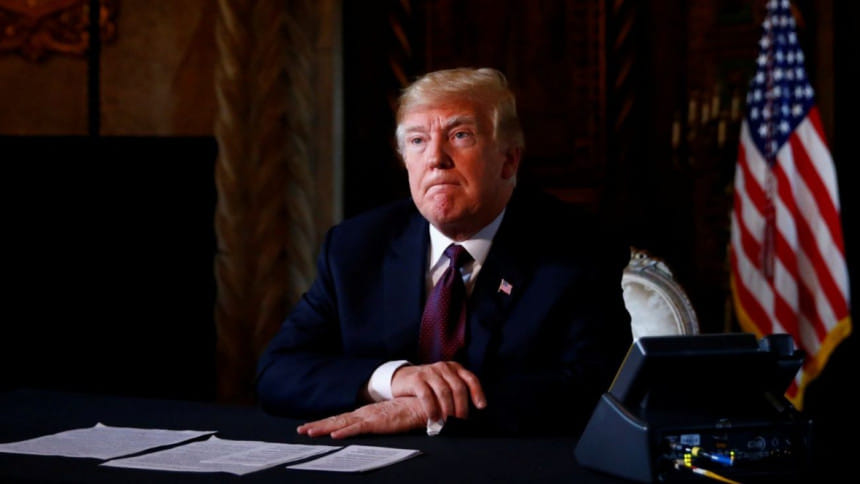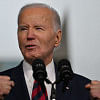Make America white again

With whisker-thin majorities, Republican candidate Donald J Trump flipped the Democratic bastions of Michigan, Wisconsin and Pennsylvania to beat Democrat Hillary Clinton in 2016 to become America's 45th president. Obama-Trump voters, who switched from Obama in 2012 to Trump in 2016, made it happen. Predominantly working-class whites—the demographic appellation was "non-college-educated whites"—they had soured, so went the conventional wisdom, on the American economy and globalisation that had left them behind.
Research, however, suggests something else. In the 2016 election, Iowa had more counties flip from Democrat to Republican than any other state. Three researchers tried to find out what motivated Obama-Trump voters in a recently published study. Iowa State University sociology professors Ann Oberhauser, Daniel Krier and Abdi Kusow analysed county-level data. Their results showed white, rural voters without a college education were more likely to switch to Republican.
But it was not economic anxiety that was the main driver.
"It was important to look more broadly at social identities, including race or in many counties whiteness, education and age to help explain this shift," Oberhauser said. "We see why the nativist narrative about taking back America and the anti-immigrant sentiment became stronger forces than economic issues."
A news release added: "These counties were often rural areas, which tend to manifest traditional cultures and attitudes reflecting white, masculine identities and a nativist version of Americanism that rejects globalisation."
There you have it. It's the fear of the other, that most atavistic of human prejudices, aggravated by ignorance. Sure, economic grievances play a role, but we need to look at the racist fears squarely in the face.
Trump—with the Republican Party in tow—appears ready to play the race card again as they eye the 2020 elections.
Will it work?
The short answer is the jury is still out, because increasing polarisation has made US presidential elections too close to call.
However, my own hunch is that it will be very difficult for Trump to pull this off this time around.
Trump's race-baiting antics rile up the base all right, but that might not be enough to win the election. The 2018 Congressional races make this abundantly clear. Trump was in his element as he went on public rants about immigration and building the wall, peppering his speeches with untruths and bigotry.
It did not work. His party lost the House to the Democrats decisively in a way that should scare Republicans. Candidates were swept out of power from long-standing Republican bastions in America's suburbs. Democrats did so well in Michigan and Pennsylvania that some analysts are saying these states may well be out of reach for Republicans in 2020.
No matter. Trump has doubled down, bringing the government to a halt on a specious demand for funds for an unconvincing "border crisis."
That hasn't worked out too well for him, either.
"Surveys show that Trump has never persuaded more than 45 percent of the country to support the border wall, and that number stood at just 40 percent, with 60 percent opposing, in a Gallup poll," political analyst Ronald Brownstein wrote in The Atlantic. Polls "consistently find that two-thirds of Americans, an even more preponderant majority, oppose Trump declaring a national emergency to build the wall," he added.
My own feeling is that Trump will hang on to his base, but support will begin to peel off the margins—with many reluctant prior voters refusing to vote for him again.
Trump, remember, remains a perennially unpopular president who has yet to come even close to 50 percent approval in a single national poll.
His erratic policy statements create situations that are downright silly. He recently declared, for example, that he was coming up with a new healthcare plan then hastily backed off after Republican senators baulked.
His administration continues to be plagued by chaos, with top officials leaving and a remarkably large number of high positions remain unfulfilled.
Then there is the Mueller report, which pointedly refused to exonerate the president for obstruction of justice. Republican hacks and their media circus would have you believe otherwise, but the spectacle of the attorney general dissembling like a sleazy defence attorney on national television underscores a compelling image of an administration bogged down by corruption and incompetence.
It all adds up to a pretty challenging presidential race for Trump. However, it is true that he has proved the pundits wrong before.
And what of the Republican Party?
The party is held in thrall by the most recalcitrant, racially polarised cohort of the party. Pretty much any Republican running for office is terrified of antagonising this cohort. But there is a steep price to be paid for that, as was evident in the 2018 elections, where the Republican Party was decimated in the suburbs.
Republicans would do well to learn from their party's experience in California. In 1994, erstwhile Republican Governor Pete Wilson romped to victory, riding on Prop 187, a viciously anti-immigrant ballot referendum initiative, which denied undocumented immigrants state assistance. However, the sugar high did not last, and today the California Republicans finds themselves in the political wilderness. Democrats have a supermajority in the legislature and control all state-wide offices.
If it isn't careful, that may well be the fate the national Republican Party is courting.
Ashfaque Swapan is a contributing editor for Siliconeer, a monthly periodical for South Asians in the United States.

 For all latest news, follow The Daily Star's Google News channel.
For all latest news, follow The Daily Star's Google News channel. 








Comments